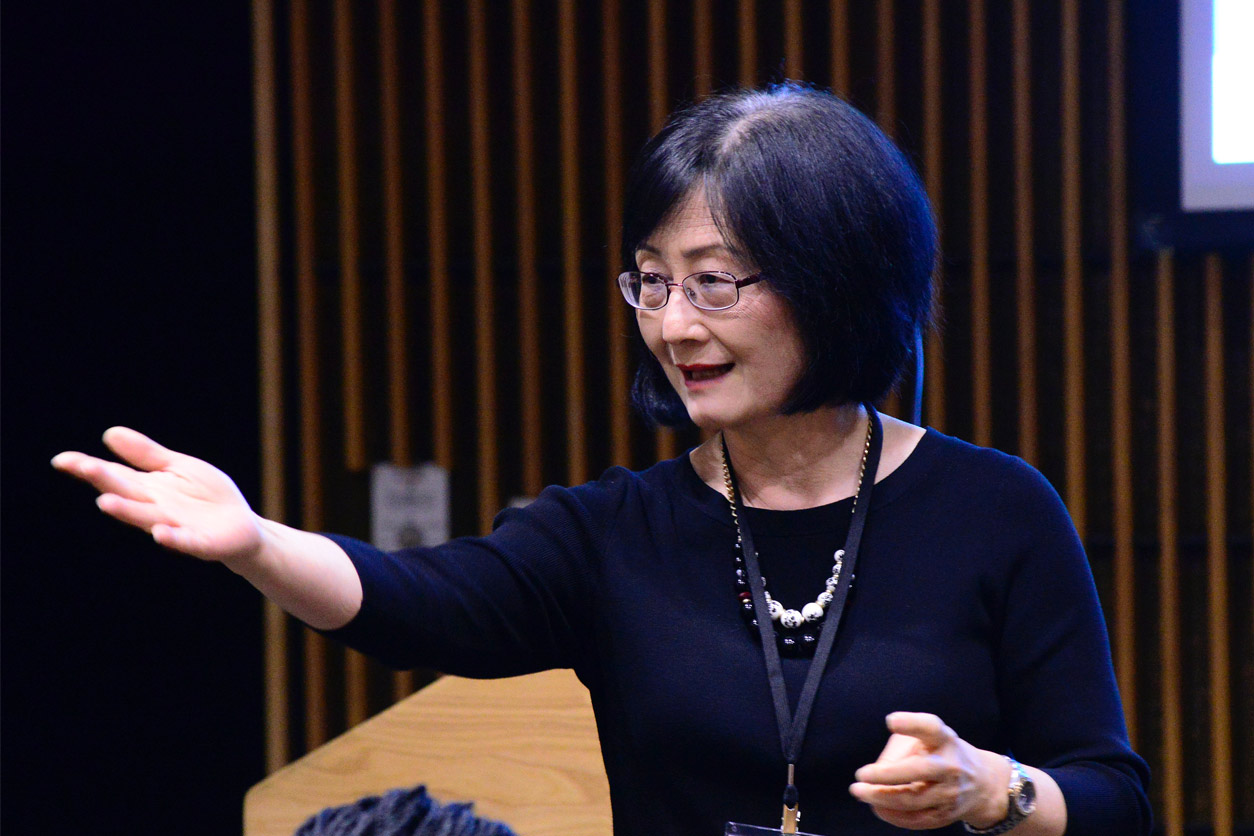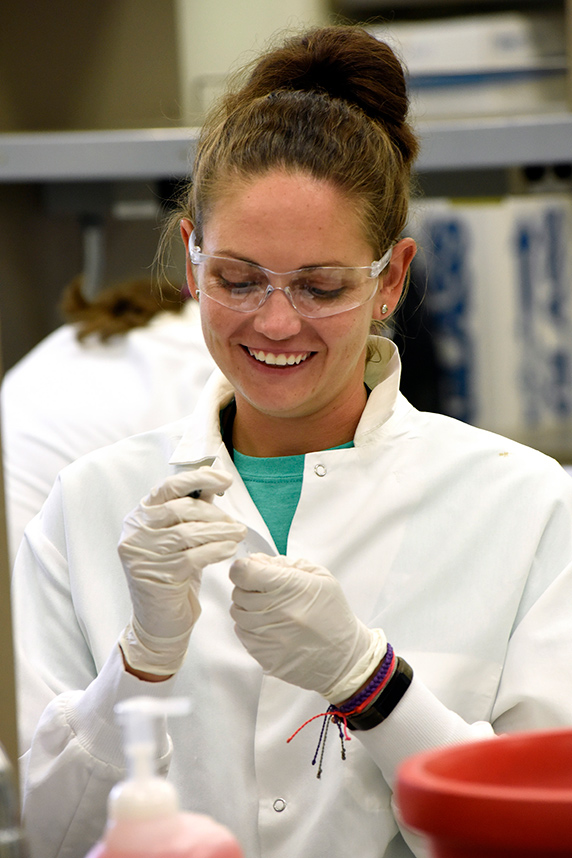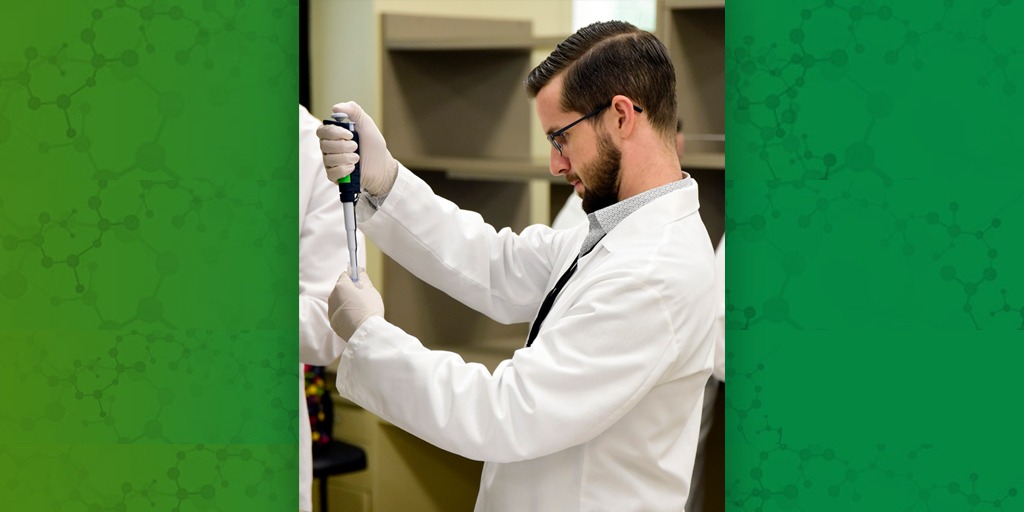Now in its sixth year, the NIEHS Science, Teachers, and Research Summer (STaRS) Experience is continuing to pay dividends for high school science teachers across North Carolina. The two-week professional development workshop, in partnership with the North Carolina Association for Biomedical Research, welcomed 15 teachers to NIEHS July 8-19.
Each year, teachers leave STaRS with enhanced laboratory skills and a deeper understanding of environmental health research. They then apply what they learn by creating classroom projects that will help their students — and even themselves — become more engaged in science. This year’s program was no exception.
Inspiration in the lab
“I like doing workshops that are hands-on and lab-focused because it helps me reinvigorate my scientific curiosity and remember why I’m teaching,” said Kevin Lloyd, of the Hospital School in Durham, North Carolina, which serves students receiving medical treatment. “It’s not just about the content and curriculum but also about doing science and enjoying the work.”
Lloyd and the other teachers soon were absorbed in laboratory activities, developing nuts-and-bolts research skills used every day at NIEHS, such as confocal microscopy and protein purification. Robert Petrovich, Ph.D., director of the institute’s Protein Expression Facility, helped to prepare the materials and provided technical assistance.
One activity that was especially well-received involved Triangle DIY Biology, a local group that promotes citizen science. The team visited NIEHS and showed the teachers how to help their students conduct low-cost experiments with everyday items.
A broader perspective
In addition to that laboratory work, teachers attended lectures by NIEHS scientists and wrestled with complex issues related to environmental health, public health, and biomedical research.
STaRS organizer Huei-Chen Lee, Ph.D., K-12 science education program manager in the NIEHS Office of Science Education and Diversity, said that one of her goals is to help teachers show students that “science is something relevant to real life [rather than] just a bundle of information that needs to be memorized.”
 Lee, shown here during STaRS 2015, has been integral to the program’s success. (Photo courtesy of Steve McCaw)
Lee, shown here during STaRS 2015, has been integral to the program’s success. (Photo courtesy of Steve McCaw)That point was demonstrated throughout the workshop.
For example, Fred Tyson, Ph.D., a program director in the Genes, Environment, and Health Branch at NIEHS, showed how early exposure to certain chemicals and pollutants can lead to disease in susceptible individuals and their offspring.
Tyson noted that since 2009, NIEHS has invested more than $1.2 billion in 638 grantee projects just in the field of environmental epigenetics, which is one approach to studying interactions between genes and the environment.
Another lecturer explained how basic research can lead to discovery of life-saving drugs. Tom Stanley, a biologist in the NIEHS Structural Biology Core Laboratory, discussed the science and technology behind biopharmaceutical drug development.
Applying lessons learned
 Sarah Calderado of North Brunswick High School said she plans to share insights she gained from STaRS with other teachers. (Photo courtesy of Steve McCaw)
Sarah Calderado of North Brunswick High School said she plans to share insights she gained from STaRS with other teachers. (Photo courtesy of Steve McCaw)Stanley’s presentation was reinforced when the teachers toured nearby Biogen, a multinational drug developer. One teacher later said she wants to use insights from that trip and Stanley’s talk to coordinate a class project simulating creation of a drug that cures Alzheimer’s disease.
Others said they were fascinated by the lectures on genetically modified organisms and the use of animals in research, and want to use the knowledge they gained to develop related classroom exercises. And some teachers said they plan to refer to the Triangle DIY Biology activity for ideas on overcoming limited financial resources at their schools.
Throughout the workshop, participants were encouraged to approach environmental health science with an open mind and a critical eye. If the teachers’ enthusiasm is any indication, that kind of rigorous thinking may soon become infectious in their classrooms.
(Jesse Saffron, J.D., is a technical writer-editor in the NIEHS Office of Communications and Public Liaison.)
Source link
factor.niehs.nih.gov

